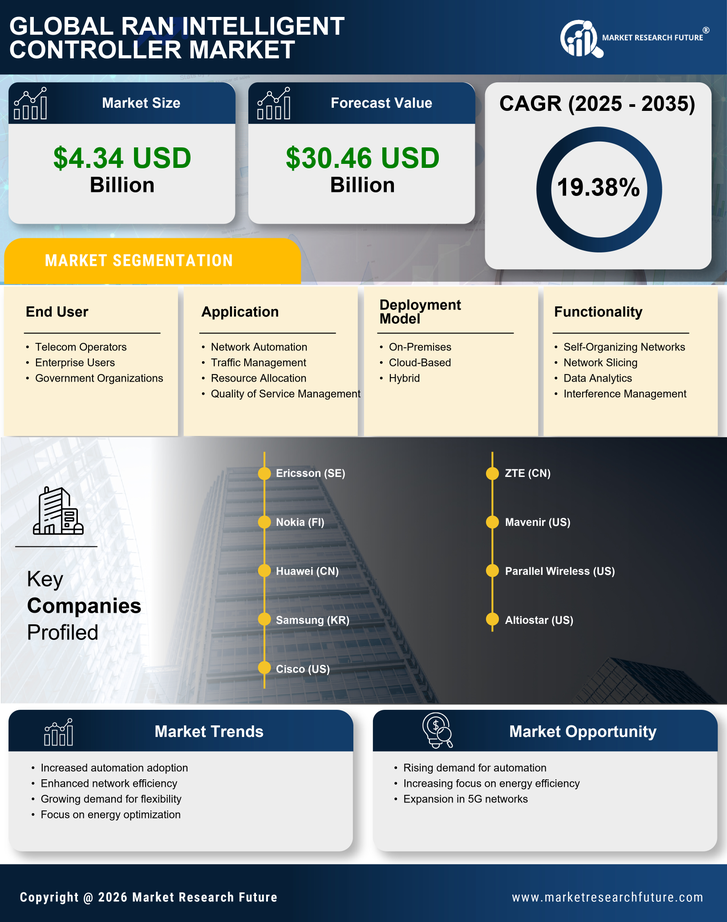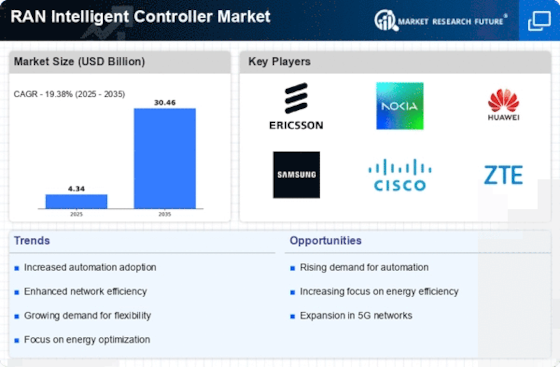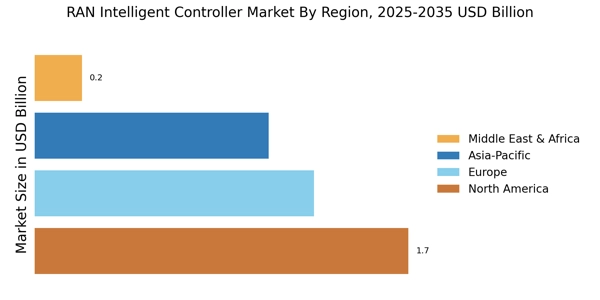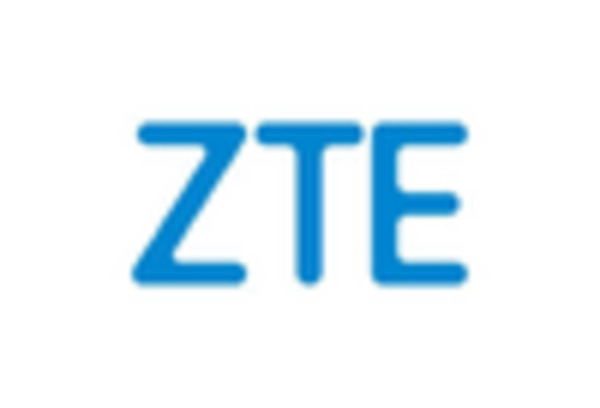Emergence of Edge Computing
The rise of edge computing is significantly influencing the RAN Intelligent Controller Market. As data processing moves closer to the end-user, the need for efficient network management becomes paramount. RAN intelligent controllers play a crucial role in facilitating edge computing by enabling real-time data processing and reducing latency. This shift towards edge computing is expected to enhance user experiences, particularly in applications requiring immediate data processing, such as IoT and autonomous vehicles. The RAN Intelligent Controller Market is poised for growth as organizations increasingly recognize the value of integrating edge computing with intelligent network management solutions.
Rising Adoption of 5G Technology
The advent of 5G technology is a transformative force within the RAN Intelligent Controller Market. As operators roll out 5G networks, the complexity of managing these networks increases, necessitating advanced solutions like RAN intelligent controllers. These controllers are designed to handle the unique challenges posed by 5G, such as ultra-reliable low-latency communication and massive machine-type communications. The RAN Intelligent Controller Market is expected to witness substantial growth, with projections indicating that 5G subscriptions could surpass 1.7 billion by 2025. This rapid adoption of 5G technology is likely to drive demand for intelligent controllers, further shaping the market landscape.
Increased Focus on Cost Efficiency
Cost efficiency remains a pivotal driver in the RAN Intelligent Controller Market. Telecommunications operators are under constant pressure to reduce operational expenditures while maintaining service quality. RAN intelligent controllers enable operators to automate network management processes, which can lead to significant cost savings. By optimizing resource utilization and minimizing manual interventions, these solutions can potentially reduce operational costs by up to 30%. This focus on cost efficiency is likely to attract more players to the RAN Intelligent Controller Market, as companies seek to leverage these technologies to enhance their competitive edge.
Regulatory Support for Network Innovations
Regulatory frameworks are increasingly supporting innovations within the RAN Intelligent Controller Market. Governments and regulatory bodies are recognizing the importance of advanced network management solutions in fostering competition and improving service quality. Initiatives aimed at promoting the deployment of intelligent network technologies are likely to create a conducive environment for market growth. For instance, policies encouraging the adoption of 5G and related technologies are expected to drive investments in RAN intelligent controllers. This regulatory support not only enhances the market landscape but also encourages collaboration among industry stakeholders, further propelling the RAN Intelligent Controller Market.
Growing Need for Enhanced Network Performance
The RAN Intelligent Controller Market is experiencing a surge in demand for enhanced network performance. As mobile data traffic continues to escalate, operators are compelled to optimize their networks to ensure seamless connectivity. The integration of RAN intelligent controllers facilitates dynamic resource allocation and improved network management, which is crucial for meeting user expectations. According to recent estimates, the global mobile data traffic is projected to reach 77 exabytes per month by 2025, underscoring the necessity for advanced solutions in the RAN Intelligent Controller Market. This growing need for performance enhancement drives investments in innovative technologies, thereby propelling market growth.

















